Machao is a warm, modern colourful and eco-conscious craftsmanship that gives full meaning to the term upcycling.
Machao not only offers unique creations at a fair price, it also supports a more responsible decoration by offering collective and individual workshop sessions.
A circular story... Machao is the Berber equivalent of both “Once upon a time” and “… “and they lived happily ever after”, perpetuating the idea that the end of each tale is always the beginning of a new story.
Turn old into gold
Since August 2020, Machao has been giving a new life to treasures buried in attics for far too long... old furniture with forgotten stories are brought up to date thanks to a nice piece of fabric, an ounce of patience and a lot of imagination.
Machao offers an alternative to the trash and to the big energy-guzzling brands. A hunt for waste and a nose-thumbing to cloned interiors. We refurbish old seating furniture to make unique, modern and aesthetic pieces.
Machao is a warm and modern upcycling, eco-conscious craftsmanship that creates furniture and unique textile creations at a fair price.
It is also the desire to co-create and to pass on. We support more responsible decorating by offering group and individual workshop sessions, a decluttering approach and more circular furnishing.
Since April 2021, Machao as set up its worshop-boutique in the heart of Brussels, in the Marolles district, a hotspot for decoration and recycling in Brussels.
Based on passion, strong values and authenticity, Machao stands on the border between art and craft.
Machao's values are :
- Independence & creativity: to propose a colorful and non-conformist aesthetics, always seeking to create the unique piece.
- Durability & common sense: to recover and repair what can still be recovered, favor quality over quantity and refrain from wasting.
- Sharing & transmission: tools, skills and advice only have utility and meaning if they are shared.
Machao is the Berber equivalent of both “Once upon a time” and “… “and they lived happily ever after”, perpetuating the idea that the end of each tale is always the beginning of a new story.
Please highlight how the project can be exemplary in this context
Repair & re-use
Whether it is the upcycling of used furniture or new creations, Machao aims above all to optimize the recovery of resources through an economic activity based on repair and re-use.
In 2020, Machao was able to save 2 tons of furniture from the landfill to keep it in life for at least another ten years. In 2021, this figure has increased to 4 tons... In 2022, Machao therefore intends to double this figure again to 8 tons.
Through the development of a local offer, the search for sources in the Brussels area and urban production, Machao seeks to develop a value chain that is as integrated as possible on the scale of the region, to the benefit of local customers and the relocation of employment in Brussels.
Winner of the BeCircular grant
Furthermore, as member of the Circlemade.brussels cluster, which brings together pioneering companies in the circular economy, and as the 2022-winner of the BeCircular regional grant which rewards the most ambitious companies in the circular economy in Brussels, Machao is working with other local players to produce a range of seating furniture for businesses and individuals as part of a 100% circular economy.
Finally, Machao intends to influence consumer demand and behavior by offering repair workshops and decluttering sessions. All of this is part of a wider effort to raise awareness of crafts, local consumption and anti-waste.
Please highlight how the project can be exemplary in this context
An exclusive piece of design at a fair price
Over a period of two years, the reception given to Machao has shown an extraordinary craze for a more reasoned, traceable, local, anti-waste and authentic consumption.
The audience? Variegated like wax prints. Men and women, of all ages and all origins who prefer the unique piece to mass production, who will foster their local shops or the repair workshop instead of the supermarket, Amazon.com or the dump.
It is the aesthetics and the search for originality and uniqueness that determine a Machao purchase. When customers discover Machao, they realise that they can afford an exclusive piece at a fair price. The limited stock creates a sense of urgency that usually leads to a purchase.
When it is not the Number one condition for purchase, Machao's sustainable and transparent approach always acts as an additional trigger and provides moral credit that eventually convinces them.
Better. By discovering Machao, the customers realize that they can also upcycle their own furniture. They become actors of their own change and give a sustainable, creative and uninhibited meaning to their consumption.
Both in B2B and B2C, many of our contacts, customers and partners agree to say that the demand for sustainable furniture is growing rapidly the offers remains too weak and very expensive. This assessment partly explains Machao's rapid success.
75% of the customer base is B2C and 80% are women, although the purchase is usually made as a couple (as for kitchens). She has a medium income and usually lives with her partner. She adheres to the local and sustainable spirit, looks for original and artisanal pieces, likes the contact and the relationship with the craftswoman.
B2B clients, who represent 25% of our clientele, are companies that are looking to fit out their premises in an eco-conscious way. Some examples of Brussels B2B customers who trust us: The Image Factory, Idyl, LaVallée, Design with Sense, Adam arts
Please highlight how the project can be exemplary in this context
Affordability & co-design
The inclusive aspect of Machao comes first from the fact that its offer remains affordable. By choosing to set up in the working-class district of les Marolles rather than in more upmarket shopping areas such as le Sablon, Ixelles or Uccle, Machao's aims to reach a less affluent clientele who also deserves unique, handmade creations. Thanks to a affordable rent and the fact that pieces recreated by Machao are often free of charge (in the trash can), the company is able to offer its creations at much lower prices than many designers working with new. The price of some of our unique and much less energy-consuming pieces is therefore sometimes close to the prices of supermarkets such as "Ikea" or "Maisons du Monde".
But inclusion also comes from the Do It Yourself (DIY) Machao’s workshops. Machao applies the 3 fields of co-design:
- Design for people : With pieces created for customers by the craftwomen ;
- Design with people : Customers can follow workshops to learn how to repair and recycle their old furniture with the craftwomen ;
- Design by people : If they are already trained, customers can come and repair their furniture themselves, and take advantage of Machao's tools and space.
Accessible to deaf and hearing-impaired people
At the beginning of 2022, Machao hired Marie-Laure, who also happens to have a diploma in sign language which make the workshops also accessible to deaf and hearing-impaired people.
This process of co-creation also lies in the collaborations that Machao undertakes with other actors in Brussels circular economy, in particular through the Circlemade.brussels cluster. The objective is to be able to propose and promote together a complete offer of furniture design in a circular economy to the whole population of Brussels.
Please highlight how this approach can be exemplary
Machao's values mentioned here above are at the crossroads where three different paths meet: sustainability, aesthetics and inclusion:
Durability & common sense
The goal behind any creation or recreation is to recover and repair what can still be salvaged, to favor quality over quantity and to always refrain from waste. The textile and furniture industries are among the most energy-intensive industries on the planet. Machao is able to provide Brussels residents with a sustainable, local and fair-priced alternative. Over 95% of Machao's suppliers and distributors are local. As far as the furniture is concerned, Machao currently sources almost exclusively from individuals within a 100 km radius which is sufficient to ensure a regular supply. In the case of custom orders and workshops, the customer is also the supplier of their own product. The development of the company will undoubtedly require access to new and more substantial deposits. A collaboration is envisaged with the Brussels-based Recypark, which is developing a recycling channel for mattresses which could become the new padding material for chairs and armchairs.
Independence & creativity
Machao intends to offer design objects with a colorful and nonconformist aesthetic, always seeking to create the unique piece. To further promote its aesthetic impact, Machao is notably supported and advised by MAD, the Maison de la Mode et du Design in Brussels.
Sharing & transmission
Machao's motto is that tools, skills and knowledge only have utility and meaning if they are shared. Behind the Machao concept, there is a much more ambitious desire to give back life to a dying profession, upholstery. Transmitting this know-how to as many people as possible is the best way to ensure that it is not lost. This also contributes to the empowerment of the population so that it becomes much more autonomous in its consumption and waste management.
Extraction of raw materials and production
The recycling of 4 tonnes of furniture not only avoided the production of 4 tonnes of waste and the associated loss of energy, but also avoided the placing on the market of more than 4 tonnes of new furniture, usually manufactured in Asia, which in turn comes with a massive ecological cost (manufacturing, distribution, lifespan and packaging).
Distribution
80% of the furniture is sourced in Brussels and generally within a 100 km radius. The furniture is transported to the workshop and to the consumer by car. 250 customers represent a distance of approximately 4000 km, or 658 kg of C02. . This aspect can hardly be improved as the customers come to the shop to see the furniture (usually by car) to be able to take it home should they decide to buy it. However, we plan to resort to the functional economy and to use soft mobility such as cargo bikes (Urbike) when it’s possible.
Life extension
Over the year 2022, Machao has planned to upcycle 600 pieces of furniture, double the amount of the previsous year, with the hiring of an additional full-time equivalent. Upcycled furniture is left for an estimated life cycle of between 10 and 50 years depending on the type of furniture and the quality of the fabrics. Before, furniture was made to stand the test of time over 2 or 3 generations. Now, they rarely last more than 10 to 15 years. Based on an average additional lifespan of 10 - 15 years, upcycling will save between 6,000 to 9,000.
End of life or recovery
At the end of the recovery process, what can be reused is kept as raw material: foams, zips, buttons. However, foams and fabrics are often too deteriorated in their original state. When it the case, recycling is the only option.
Objectives for 2022
- 144 personal recreations
- 144 orders
- 27 workshops
- 12 pieces of 100% circular furniture
In 2022, the annual turnover is estimated at €144,284.
Please also explain the benefits that derived from their involvement.
Networks
Citizens are constantly involved in the process by being encouraged to rehabilitate their seating furniture rather than throw it away. Over the past twelve months, Machao has hosted around ten DIY workshops.
In December 2021, Machao joined the Wecandoo network. this French network supports crafts by organizing manual workshops during which craftsmen and citizens meet around the practice of a know-how. It supports a local economy, driving human interaction across its territory.
Fighting climate change & raising awareness
The first global challenge Machao wishes to participate in locally is to achieve sustainable development for all while fighting climate change. It is the very principle of recycling and upcycling which not only extends the life of furniture but also limits the energy impact that its production and distribution can have on the environment.
The objective is therefore to reconcile population growth and resources by raising awareness.
Empowerment
Then, Machao aims to reduce the gap between the rich and the less fortunate by facilitating access to uniquely designed and aesthetically pleasing furniture. Furthermore, Machao allows less affluent classes to fight against the obsolescence of their furniture by learning how to repair it. The acquisition and development of new skills through training also enables Machao to help meet financial, social and ecological long-terms challenges.
Finally, through the activity itself, it is the professional status of certain women that Machao intends to improve. Machao was founded by a woman and receives mostly women in its workshops.
To become a major force in the eco-recycled furniture sector
Machao innovates by positioning itself on the niche market of responsible decoration, by offering an alternative to overconsumption through the renovation of furniture, in an original and artistic approach, at a fair price. Upcycled furniture today is very classic and the prices are literally exploding.
Even though Machao does not have sufficient means and resources from the recycling industry to produce 100% upcycled furniture, it has the ambition to become a driving force in this sector. Machao and its collaborators aims to become a successful actor accelerating the development of a 100% sustainable and Brussels-based eco-textile industry. The growth of the upcycling business can result in the development of a value chain from the recovery of raw materials to the creation of high added value products and services: illustration, editing and production of sustainable furniture fabrics, remanufacturing of used fabrics, transformation of mattress waste into new seats.
Our ambition is to become a major force in the eco-recycled furniture sector, using locally sourced materials to furnish interiors and to offer a real local and responsible alternative to the furniture industry.
Please provide clear documentation, communication of methodology and principles in this context.
Slow design movement
Given the constant craze for upcycling, renovation and responsible decoration, this project is destined to grow and multiply, not only in Brussels but throughout Belgium and beyond. The usefulness of this project will be to demonstrate the viability and the ethical and aesthetic added value of this recovery process and to encourage the emergence, both in cities and in rural areas, of new upcycling workshops-boutique for interior design.
It should also be noted that there is a wide variety of offers in the areas of electronics repair/recovery, bicycles and clothing. The same applies to furniture upcycling. This sector just needs more visibility to develop in a similar way. We will be committed to keeping and sharing a written record of what works and what doesn't to encourage entrepreneurs to develop similar projects.

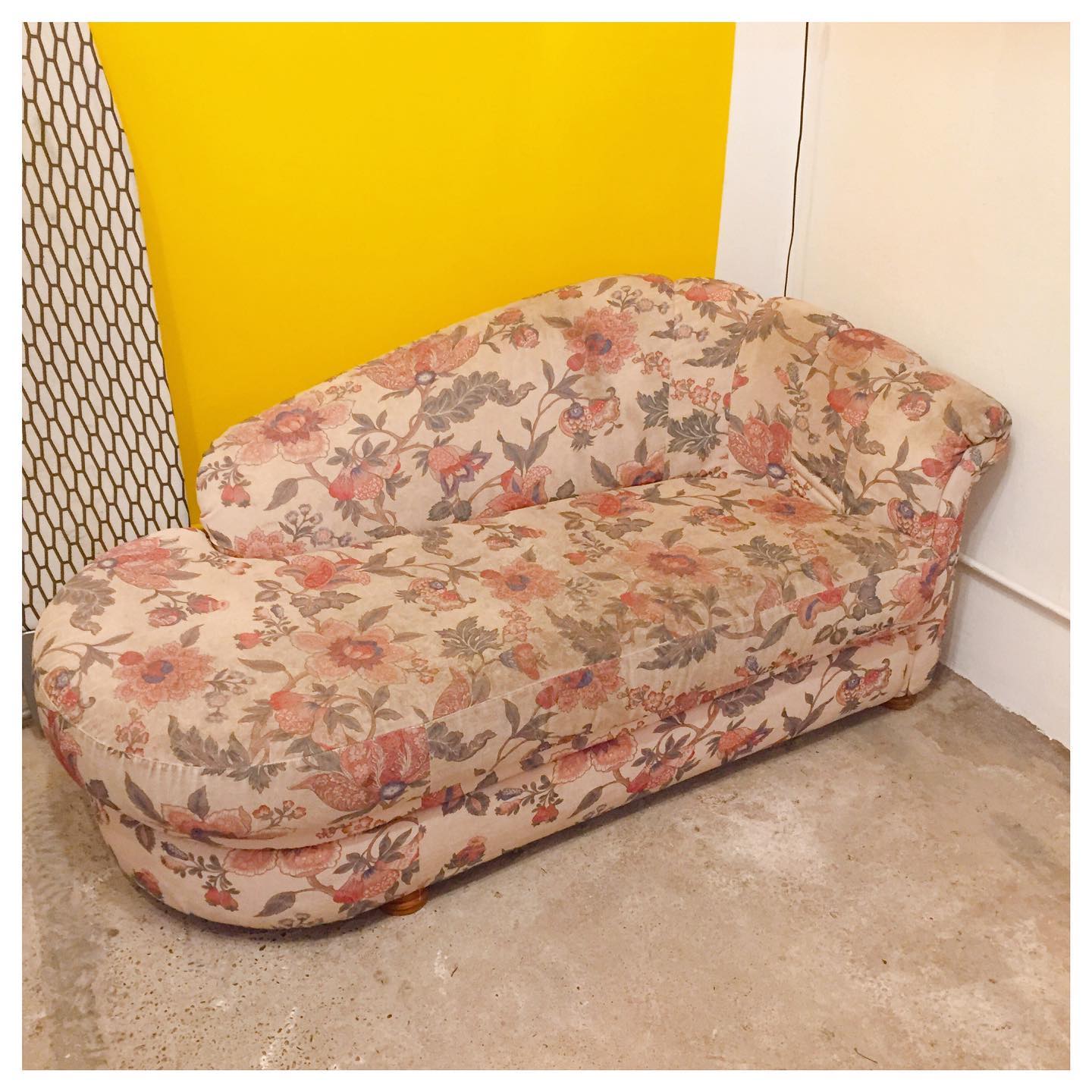
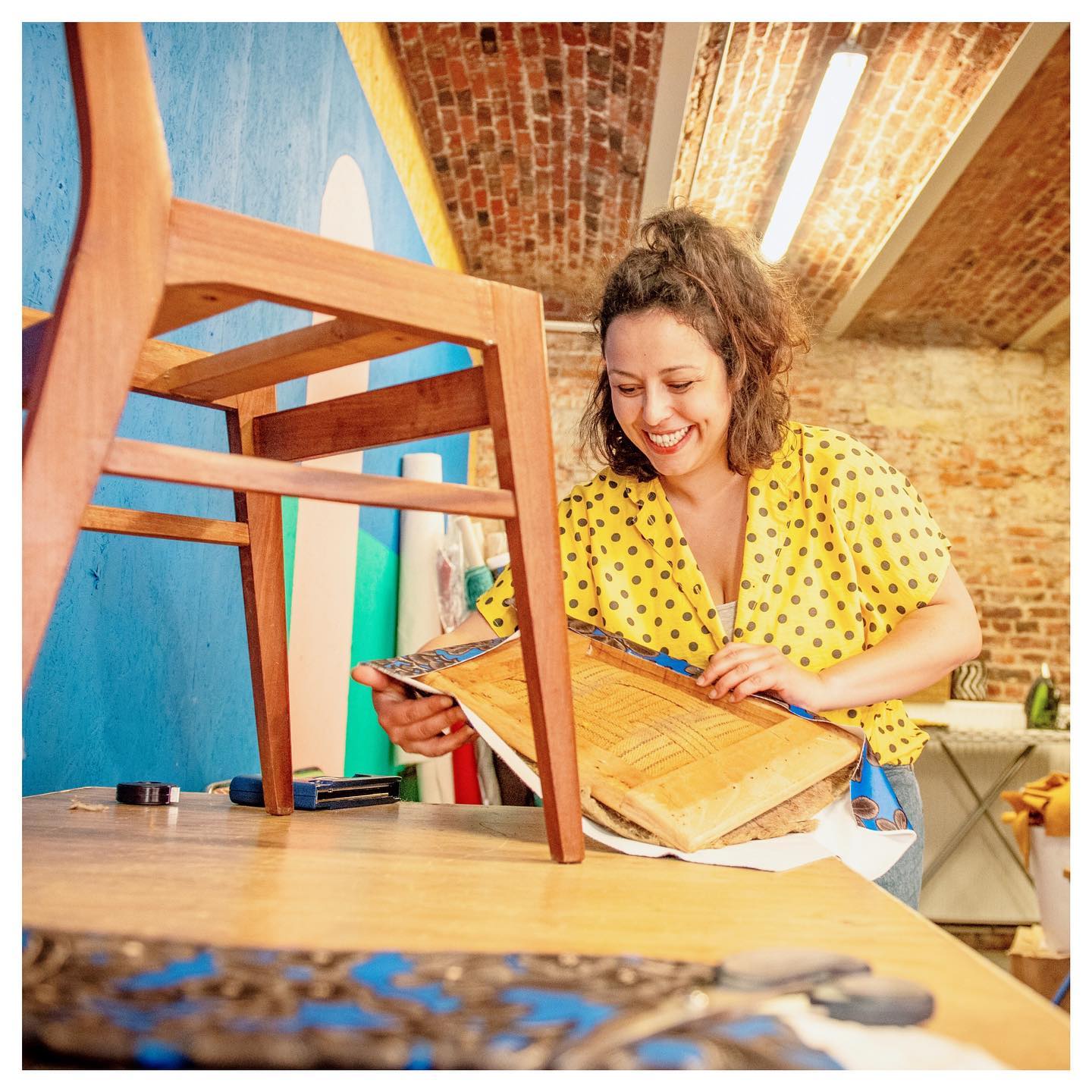
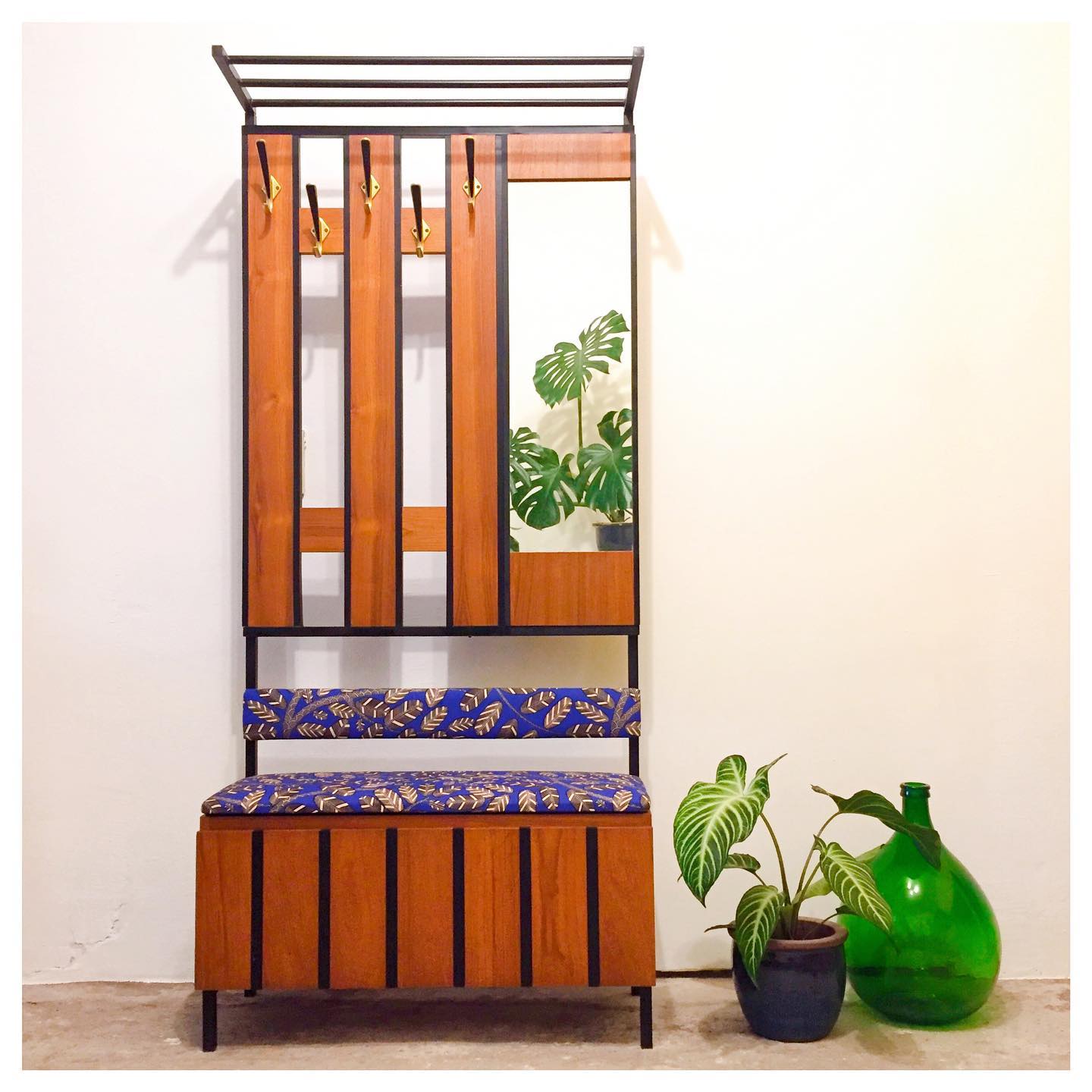
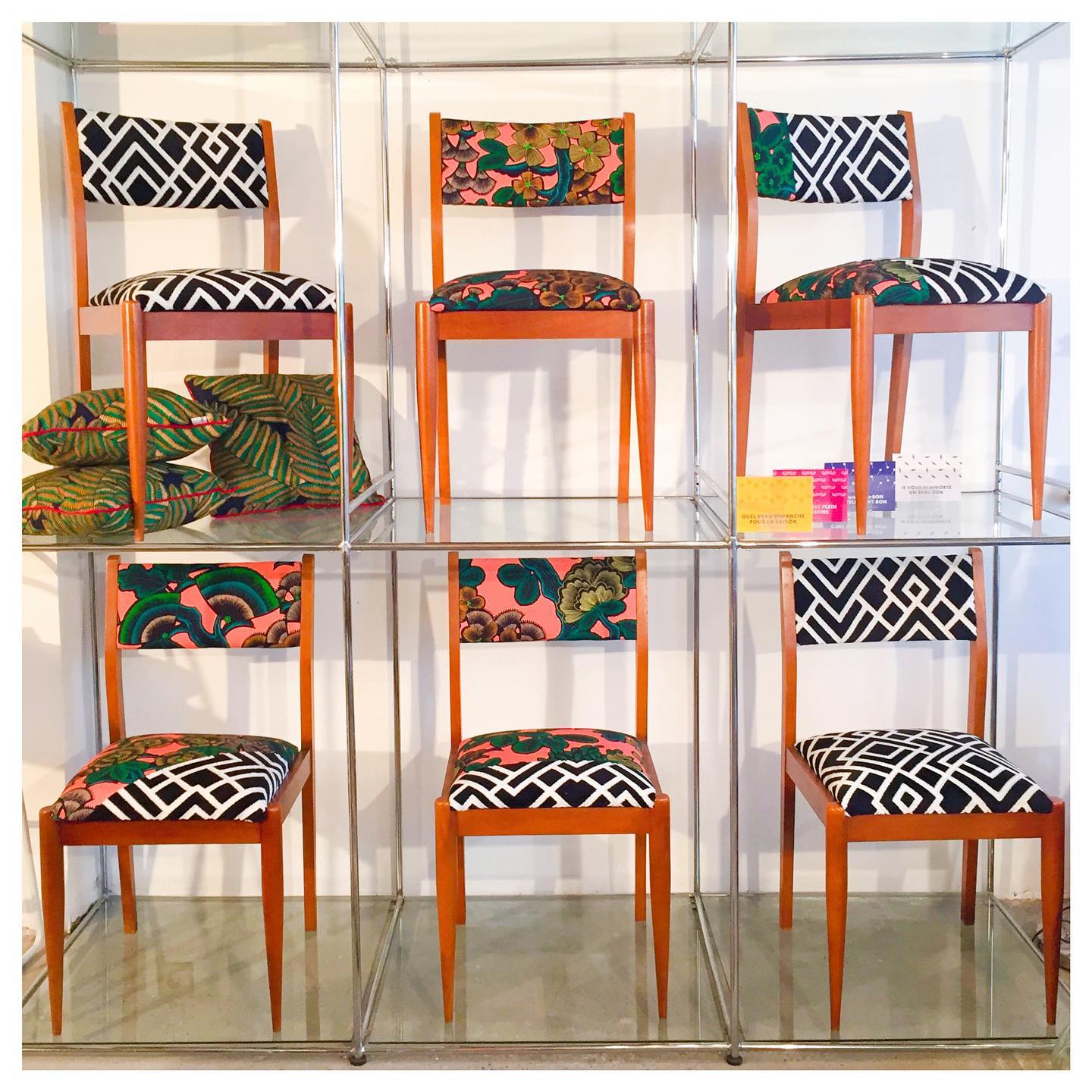
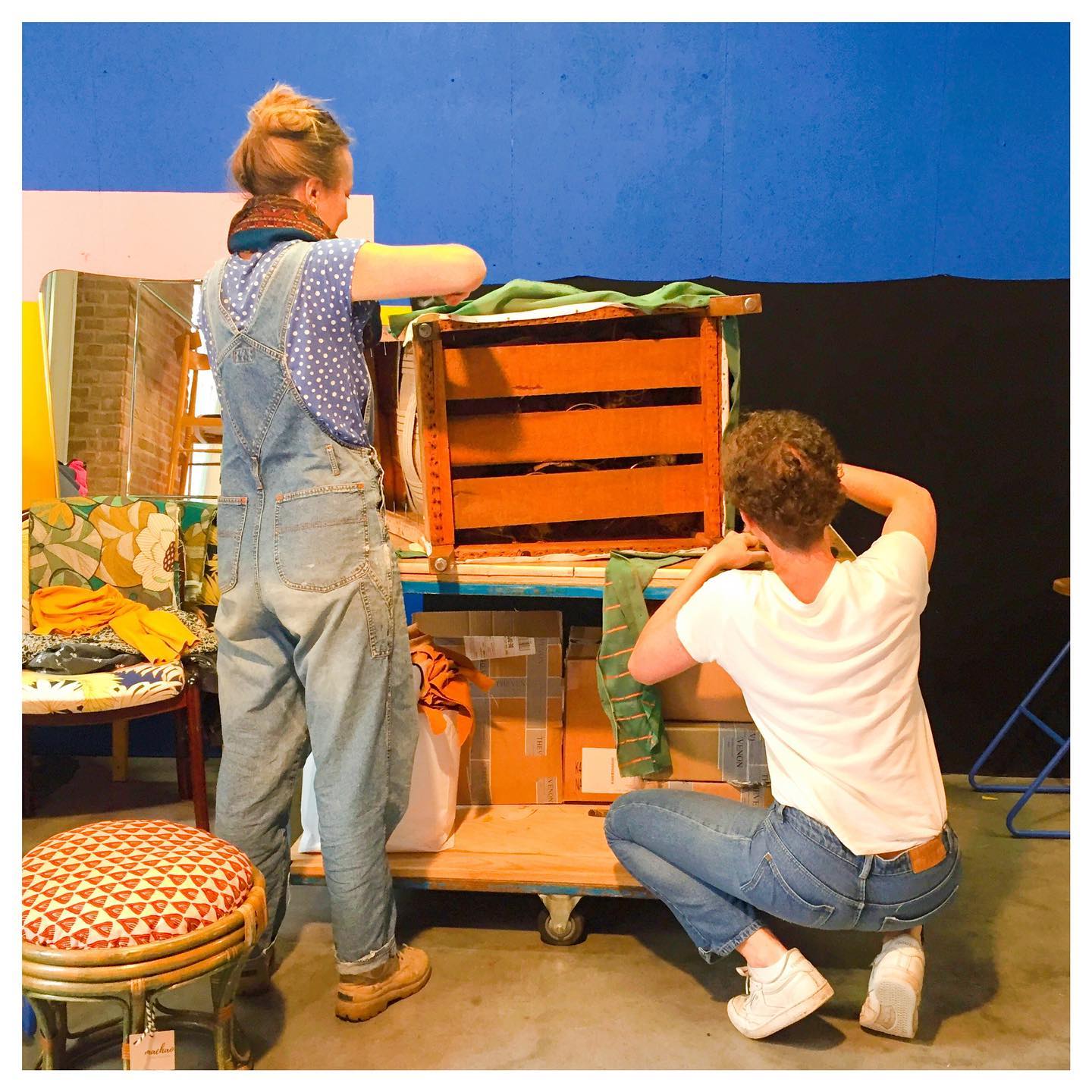
@MyriamZahri, 2020
Content licensed to the European Union.